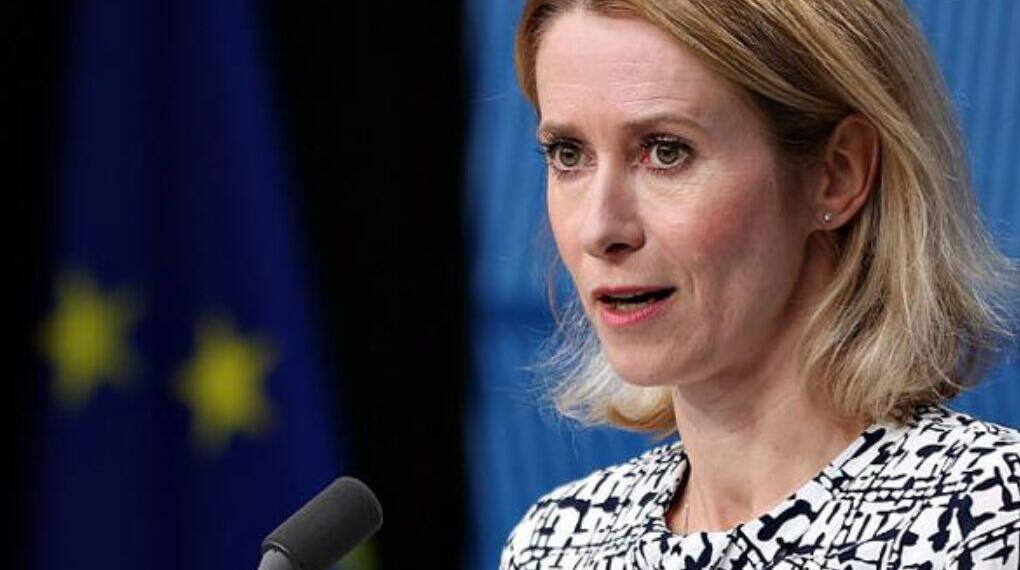The planned peace summit between Russian President Vladimir Putin and US President Donald Trump in Budapest has triggered strong reactions across Europe, with the EU’s top diplomat, Kaja Kallas, openly expressing her displeasure.
Speaking ahead of the EU Foreign Affairs Council meeting in Luxembourg, Kallas said it was “not nice” that a leader wanted by the International Criminal Court (ICC) would be welcomed in a European Union member state.
The controversy underscores deep rifts within Europe over how to handle the ongoing Russia–Ukraine conflict, with Hungary once again breaking ranks with Brussels to position itself as a diplomatic bridge between East and West.
Kallas’s Criticism: Law vs. Diplomacy
Kaja Kallas, who serves as the EU’s High Representative for Foreign Affairs and Security Policy, referenced the ICC’s March 2023 arrest warrant against Putin, issued over allegations of unlawful deportation of Ukrainian children from the Donbass region. “I would be unhappy to see a person with an arrest warrant… coming to an EU country,” she said.
The remark highlights Europe’s legal and moral quandary: should diplomatic dialogue with Moscow be pursued at the cost of undermining international law? The ICC’s warrant obliges all signatories of the Rome Statute, including Hungary, to arrest Putin if he enters their territory.
However, Budapest has indicated it will not enforce the warrant, arguing that national law supersedes ICC directives in this case. The move infuriates Brussels, which already views Hungarian Prime Minister Viktor Orbán as a maverick obstructing EU unity.
Budapest’s Defiance and the Geopolitical Gamble
The Putin–Trump summit, reportedly arranged after a two-hour phone call between the two leaders, is set to take place in Budapest, a choice laden with political symbolism. Orbán has long maintained “warm” and “constructive” ties with both Trump and Putin, positioning Hungary as an independent mediator amid escalating East–West tensions.
Kremlin spokesperson Dmitry Peskov confirmed that the summit aims to “make progress towards a settlement with Ukraine.” He added that Hungary was chosen precisely because it “has never closed channels of negotiation,” in contrast to other EU states that have cut diplomatic contact with Moscow since the 2022 invasion of Ukraine.
Orbán, writing on Facebook, reinforced that sentiment, saying Hungary’s policy of open dialogue “serves peace, not war.” His government’s willingness to host Putin, despite EU pressure, underscores its distinct foreign policy path—one rooted in pragmatism and national interest rather than Brussels’ collective stance.
EU Embarrassment and Fractures in Unity
For the European Union, the upcoming summit is both symbolically awkward and politically damaging. As reported by Spain’s El País, the meeting represents an “embarrassing situation” for Brussels, as it highlights Europe’s exclusion from key peace efforts that could shape the future of Ukraine and the continent’s security architecture.
Kallas’s comments reflect growing concern that Trump and Putin may sideline the EU in discussions about ending the war, much as previous US-led diplomatic efforts have done. Moreover, the summit amplifies the division within the EU between countries like Poland and the Baltic states—who advocate hardline policies against Moscow—and Hungary, which calls for dialogue and reconciliation.
Moscow’s Response: “Western Sabotage”
Reacting to the backlash, Russian Foreign Ministry spokesperson Maria Zakharova accused the “aggressive Western European community” of trying to derail any peaceful aspirations. She characterized European diplomacy as hypocritical, claiming that “calls for peace in Brussels are mere camouflage.”
This rhetoric reflects Moscow’s broader narrative that Western powers thrive on prolonging conflict rather than seeking genuine resolution—a narrative that resonates in parts of Europe disillusioned by the economic and political costs of the war.
What next? Hope or Headache for Europe?
The Budapest summit, while hailed by some as a potential turning point toward peace, remains fraught with uncertainty. For one, Trump’s willingness to engage directly with Putin raises questions about US alignment with European priorities. For another, Kallas’s warning underscores the legal contradictions of allowing an ICC-wanted individual to participate in high-level diplomacy on EU soil.
Whether the meeting yields progress or merely deepens divisions, one thing is clear: Hungary has again placed itself at the center of European controversy, testing the EU’s cohesion at a time of global volatility.
If the Putin–Trump talks in Budapest proceed as planned, they will not just be a bilateral meeting—they will mark a symbolic challenge to the EU’s authority, testing the limits of international law, sovereignty, and the shifting balance of power between Washington, Moscow, and Brussels.








